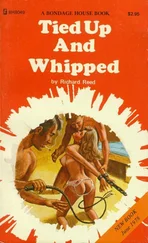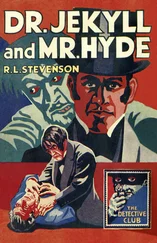Richard Fowler - Experiments and Observations
Здесь есть возможность читать онлайн «Richard Fowler - Experiments and Observations» — ознакомительный отрывок электронной книги совершенно бесплатно, а после прочтения отрывка купить полную версию. В некоторых случаях можно слушать аудио, скачать через торрент в формате fb2 и присутствует краткое содержание. Жанр: foreign_antique, foreign_prose, на английском языке. Описание произведения, (предисловие) а так же отзывы посетителей доступны на портале библиотеки ЛибКат.
- Название:Experiments and Observations
- Автор:
- Жанр:
- Год:неизвестен
- ISBN:нет данных
- Рейтинг книги:5 / 5. Голосов: 1
-
Избранное:Добавить в избранное
- Отзывы:
-
Ваша оценка:
- 100
- 1
- 2
- 3
- 4
- 5
Experiments and Observations: краткое содержание, описание и аннотация
Предлагаем к чтению аннотацию, описание, краткое содержание или предисловие (зависит от того, что написал сам автор книги «Experiments and Observations»). Если вы не нашли необходимую информацию о книге — напишите в комментариях, мы постараемся отыскать её.
Experiments and Observations — читать онлайн ознакомительный отрывок
Ниже представлен текст книги, разбитый по страницам. Система сохранения места последней прочитанной страницы, позволяет с удобством читать онлайн бесплатно книгу «Experiments and Observations», без необходимости каждый раз заново искать на чём Вы остановились. Поставьте закладку, и сможете в любой момент перейти на страницу, на которой закончили чтение.
Интервал:
Закладка:
The different non-conductors of electricity are likewise, I find non-conductors of this influence: even wood, charcoal, and linen, do not conduct except when moist. But all the living vegetables I could procure afforded it a ready passage: probably from the fluids which they contain. While I held the probe which supported the nerve, I touched the shoe of a gentleman, who applied the zinc to the silver under the foot of the frog. Strong contractions were excited, but when he took off his shoe, and we held it between our hands, no contractions could be excited. In the first case, the influence had to pass through no more than the thickness of the shoe: in the second, through its whole length, which might not be all equally moist. This gentleman had on thread stockings. When I touched the foot of another, who had on cotton stockings, no contractions were excited. Cotton is a non-conductor of electricity.
Oils of all kinds are so far from conducting, that if the fingers of the person holding either the probe, or the zinc, have perspired much, even this operates as a complete obstruction to the passage of the influence: the instant the perspired matter has been wiped away, and the fingers have been dipped in water, it again passes, and excites contractions. When the intestines of a frog are removed, and its abdomen is filled with oil, no contraction can be excited by placing one metal upon its sciatic nerves, and bringing another in contact with it, either above or below the surface of the oil.
There is something singular in this respect, with regard to mercury. If the abdomen of a frog be filled with it, a piece of zinc passed through it, so as to touch the sciatic nerves, excites contractions. But a piece of silver, passed to them, excites none. Neither are any excited by touching the silver, beneath the surface of the mercury, with a piece of zinc. But I have before shewn, that, when water is used instead of mercury, contractions may be in this way excited; yet mercury is reckoned a much better conductor of electricity than water. I have repeatedly passed this influence through a great length of thin brass wire, and through the bodies of five persons communicating with each other, by dipping their fingers in basins of water placed between them; yet it did not appear to have lost any of its force, in this long and diffused passage: for the contractions excited in the frog’s leg were equally strong, as when it had passed only through one person. Vitriolic acid, and alcohol appear still better conductors than water.
Wishing to ascertain whether it passed over the surface, or through the substance of metals, I coated several rods of different metals with sealing wax, leaving nothing but their ends, by which they were held, uncovered. Contractions were excited as readily through the media of these, as if they had not been coated. It seems to meet with no obstruction in passing from link to link, of several chains, even when no pressure, except that of their own weight, is used to bring them into contact. I was led from this to hope, that I should be able to make it pass through a very thin plate of air. I, therefore, coated a stick of sealing wax, with a plate of tin-foil, and then made an almost imperceptible division a-cross it with a sharp pen-knife. But even this interruption of continuity in the conductor was sufficient effectually to bar its passage.
The chains, through which it passed most readily, were of gold and silver. It did not pass through a very long and fine brass chain, unless as much force as could be used, without breaking the chain, was employed to bring its links into close contact.
I next proceeded to examine if the capacity of different substances, as conductors, or non-conductors, was at all affected by differences of their temperature. But this was not the case with zinc, iron, water, coal, or a common crucible, the only substances with which I tried the experiment. A red hot iron, and boiling water, conducted equally as well as iron and water that had not been heated: and neither the crucible, nor the coal, became conductors from any addition of heat.
I at first thought that ice conducted; but as, on some trials, no contractions were excited through its medium; and as it appeared uniformly to conduct ill in proportion to the dryness of its surface; I suspect that, if perfectly dry, it would not conduct at all. The instant a part of its surface had been dissolved by the heat of the room, contractions were excited with as much ease, as they usually are through a bason of water. It would appear, therefore, that neither very hot, nor very cold water disperse this influence, as has been asserted by Dr Valli, nor do they seem in the least degree to diminish its power of producing contractions 6 6 ‘L’eau trop échauffée, ou qui est en éboullition, disperse l’électricité, de manière à en détruire les phenomènes.’ ‘L’excès du froid prive l’eau même de la propriété de conduire le fluide en question.’ — Dr Valli, Lettre 9me.
.
It appears upon the whole to be necessary, that this influence should pass to a part in a very condensed state, in order to excite contractions: although there are some facts, which, without reflecting, might lead one to suppose, that, passing even in a diffused state, it would excite them. In making that experiment, in which the piece of zinc under the foot of a frog is touched with zinc, while its crural nerve is supported by a silver probe; no contraction takes place, if the probe be either lowered, so as to come in contact with the muscles of the thigh, or if it be made to touch the silver under the foot.
If again, two persons, one of whom holds the probe, the other the zinc, communicate with each other by dipping their unemployed hands in a bason of water; and the person using the zinc holds another leg of a frog, suspended between his fingers by its nerve beneath the surface of the water; no contraction will take place in this leg, when the silver under the other is touched with zinc, at the same time that strong ones are excited in that other. But, if its nerve be raised above the surface of the water, it then contracts as vividly as the other. It appears that in the last of these instances, at least the greater part of the influence had diffused itself through the water, instead of passing directly through the nerve, from the fingers of the person holding it, and that in both it had passed into the legs, in too diffused a state to excite them to contraction.
I have often likewise observed, that when the nerve of a nearly exhausted leg of a frog had been laid upon a piece of zinc, and both were touched with silver, the contractions excited were very distinct: but when the zinc was placed in contact with the muscle, as well as with the nerve, either no contractions could be excited, or such feeble ones that they were scarcely perceptible.
Contractions, however, certainly may be excited in different parts of a frog, without making any division of its skin, by laying the part of the frog to be excited upon a plate of zinc, or tin-foil, and passing a piece of silver over it, till all three are in contact with each other 7 7 It was in this way, indeed, that I have always excited contractions, when I have employed this new mode of influencing animals, as a test of remaining life in any part of them. They were constantly kept in fresh water, as the situation most natural to them, during the whole of the time they were under experiment; and their skins were suffered to remain as entire as possible, since I found their muscles lost their contractile power, in a few hours, and became rigid when exposed, deprived of their skins, to the action of the water.
. Yet even here the influence does not pass into the part in so diffused a state as it may at first appear to do. For the skin of these animals is abundantly supplied with nerves, whose trunks communicate, at different places, with those which supply the muscles. And the contractions are always strongest, and most readily excited, when the silver is passed over the course of any of the nerves, which go to the muscles.
Интервал:
Закладка:
Похожие книги на «Experiments and Observations»
Представляем Вашему вниманию похожие книги на «Experiments and Observations» списком для выбора. Мы отобрали схожую по названию и смыслу литературу в надежде предоставить читателям больше вариантов отыскать новые, интересные, ещё непрочитанные произведения.
Обсуждение, отзывы о книге «Experiments and Observations» и просто собственные мнения читателей. Оставьте ваши комментарии, напишите, что Вы думаете о произведении, его смысле или главных героях. Укажите что конкретно понравилось, а что нет, и почему Вы так считаете.












